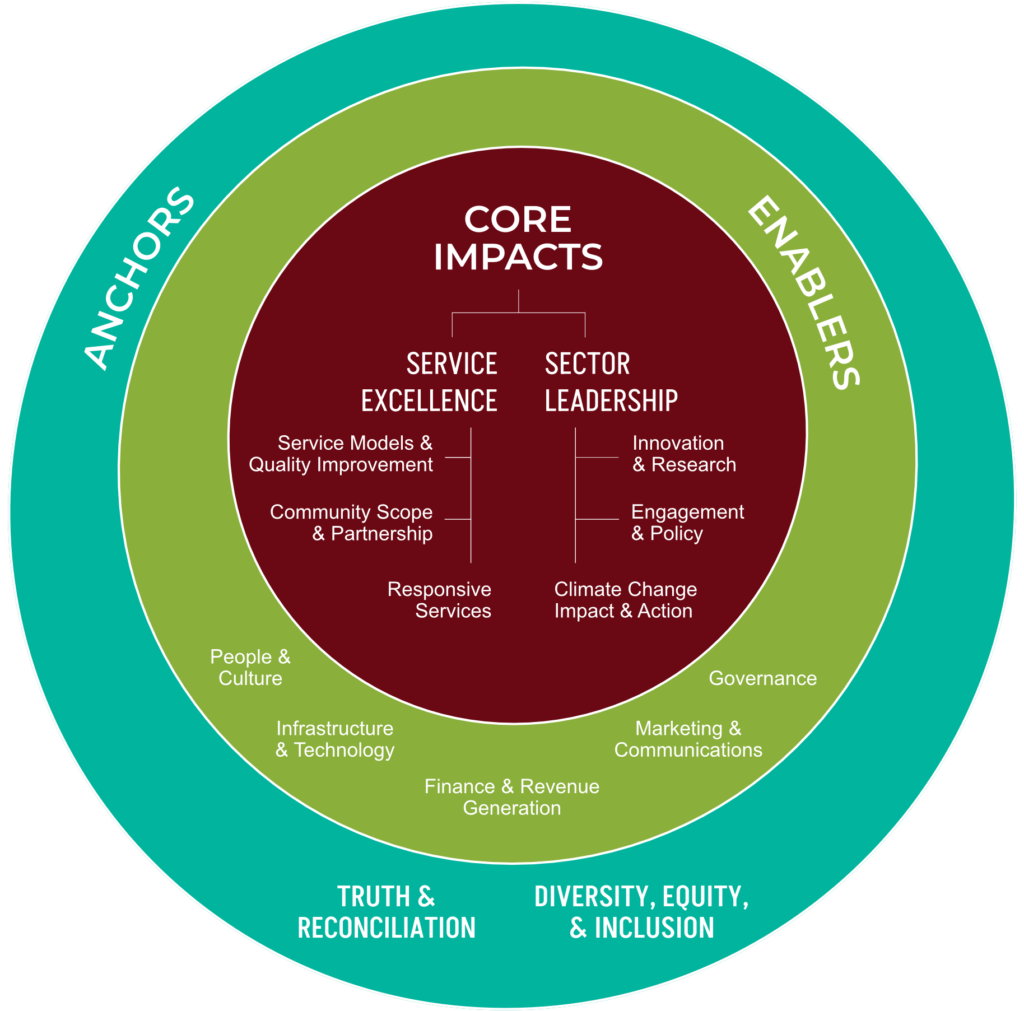Organizational Capacity (Enablers)
- As a community-based social impact organization, ISSofBC needs a strong and efficient infrastructure to deliver on our mission. With over 450 staff, 10 service locations, numerous complex contracts, and a growing digital system, we must operate both flexibly and at scale.
- In 2024-25, we advanced several projects to support this work, including new HR and people initiatives, the next phase of our digital investment plan, improved real estate management, and refreshed marketing, branding, and communications strategies.
- Financially, we exceeded our goals across the 3-year period, although we also prepared for the challenges ahead that will come with reductions in immigration levels and funding.
- We improved our governance by introducing new Board policies, updating committee and meeting structures, and launching a strategic planning process over the past year.
Building our organizational capacity has been a key focus for the last three years. While this work continues—especially around people and technology—we have already met the majority of our goals.
Social Justice Anchors
- In June 2024 we launched our first Truth & Reconciliation Strategy (TRS), a three-year commitment to deepen our understanding and contribution to Canada’s journey with Indigenous peoples. Over the year, we advanced a range of initiatives and met our commitment to report out on progress achieved.
- In the summer of 2024, we completed our organizational DEI assessment—a key part of our strategic plan—and developed an initial action plan to build capacity and leadership for this work moving forward.
ISSofBC remains committed to the principles and actions needed to advance both Truth & Reconciliation and DEI. Our progress has been thoughtful and steady, though slower than originally planned. Still, we have achieved the key goal of integrating these social justice principles into our organizational practices, and we will continue to deepen our understanding and efforts going forward.
Our New Strategic Plan
Looking ahead, we are beginning to develop our new strategic plan. Given the rapid changes in the settlement landscape, we are carefully reassessing our goals and priorities. For the next 12 months, we will follow a continuity plan to advance the main priorities of the 2022–25 strategy, while working to finalize the new strategy for implementation in 2026.


